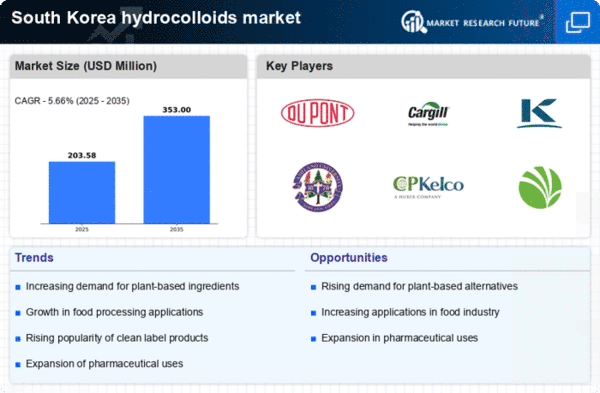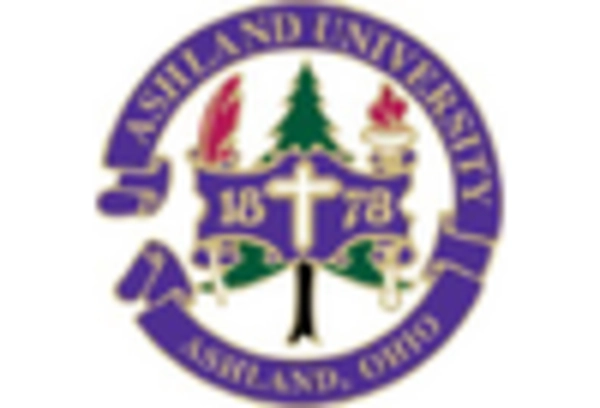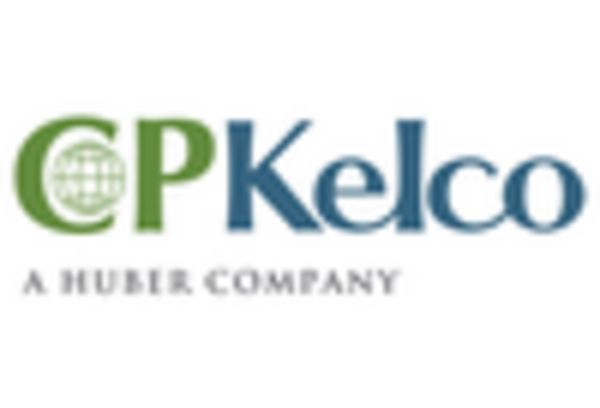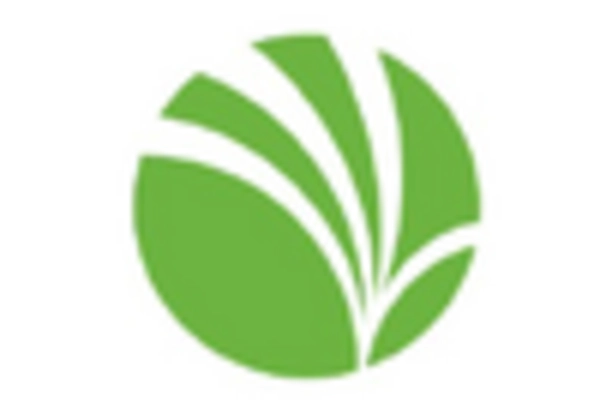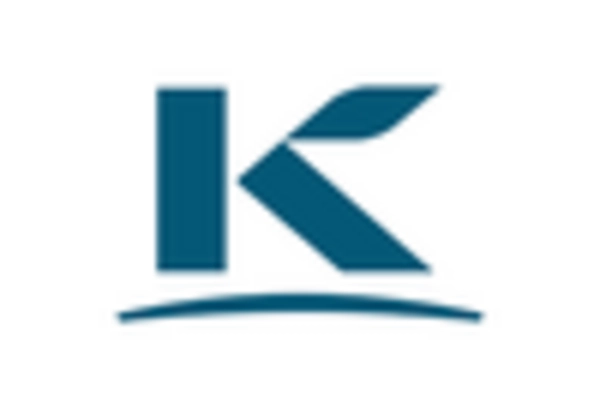Growing Health Consciousness
The increasing health consciousness among consumers in South Korea appears to be a significant driver for the hydrocolloids market. As individuals become more aware of the nutritional value of their food, there is a rising demand for products that contain natural and functional ingredients. Hydrocolloids, known for their thickening, gelling, and stabilizing properties, are increasingly utilized in health-oriented food products. The market for hydrocolloids in South Korea is projected to grow at a CAGR of approximately 5.5% from 2025 to 2030, driven by the demand for healthier food options. This trend indicates that manufacturers are likely to innovate and incorporate hydrocolloids into their formulations to meet consumer preferences, thereby enhancing the overall growth of the hydrocolloids market.
Expansion of the Food Industry
The expansion of the food industry in South Korea is likely to bolster the hydrocolloids market. With the rise of food processing and the increasing number of food establishments, there is a growing need for ingredients that enhance texture and stability. Hydrocolloids play a crucial role in various applications, including sauces, dressings, and dairy products. The South Korean food industry is expected to reach a valuation of over $200 billion by 2026, which suggests a substantial opportunity for hydrocolloids. As food manufacturers seek to improve product quality and shelf life, the demand for hydrocolloids is anticipated to increase, further driving the growth of the hydrocolloids market.
Innovations in Food Technology
Innovations in food technology are emerging as a pivotal driver for the hydrocolloids market in South Korea. The development of new hydrocolloid formulations and extraction methods is enhancing the functionality and application range of these ingredients. For instance, advancements in the extraction of plant-based hydrocolloids are likely to cater to the growing vegan and vegetarian population. The South Korean market for plant-based food products is projected to grow by 10% annually, indicating a potential increase in the use of hydrocolloids derived from natural sources. This trend suggests that food technologists are likely to explore novel applications for hydrocolloids, thereby expanding their role in the hydrocolloids market.
Rising Demand for Convenience Foods
The rising demand for convenience foods in South Korea is expected to significantly impact the hydrocolloids market. As lifestyles become busier, consumers are increasingly seeking ready-to-eat and easy-to-prepare food options. Hydrocolloids are essential in formulating these convenience foods, as they help maintain texture and stability during processing and storage. The convenience food sector in South Korea is projected to grow by approximately 6% annually, which indicates a robust market for hydrocolloids. This trend suggests that food manufacturers are likely to invest in hydrocolloid-based solutions to enhance the quality and appeal of their convenience food offerings, thereby driving the hydrocolloids market.
Increased Focus on Clean Label Products
The increased focus on clean label products is emerging as a crucial driver for the hydrocolloids market in South Korea. Consumers are becoming more discerning about the ingredients in their food, leading to a demand for transparency and simplicity in product formulations. Hydrocolloids, often derived from natural sources, align well with this trend as they can be marketed as clean label ingredients. The clean label food market in South Korea is anticipated to grow by 8% annually, suggesting a favorable environment for hydrocolloids. This trend indicates that manufacturers are likely to reformulate their products to include hydrocolloids, thereby enhancing the appeal of their offerings in the hydrocolloids market.


